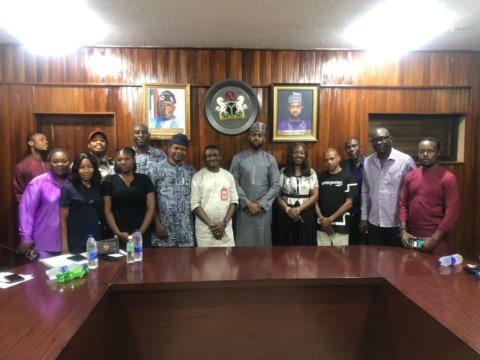

Text description provided by the architects. Six years ago, we were invited to participate in the design of a Thangka Art Museum, aiming to house traditional Buddhist Thangka art collections. The site is located at the foot of Penbu Mountain in the southern part of Lhasa, facing the Potala Palace across the Lhasa River. Being away from the core area of Lhasa, the site grants us more design freedom, yet it also presents the challenge of how to innovate while staying true to tradition. We aim for its volume and spiritual essence to be harmoniously unified.


Considering the spiritual connection between the design of traditional Tibetan architecture and the surrounding mountains, we suggested to relocate the site from the center of the park to the foothills, to accentuate the dialogue between the museum, the mountains, and the sky. Drawing inspiration from the architectural features of the Potala Palace, we adopted the archetype of stepped partition walls and divided them into six volumes interconnected along the slope.


We have designed two visitor routes. The concept of “mountain” holds deep spiritual significance for the local residents. Therefore, in the external route, visitors ascend various staggered platforms formed between different structures, allowing them to admire large Thangka hanging on the tower. The main tower also serves as a “wind tower,” with a dual-fan curtain wall system ensuring controlled indoor climate and natural ventilation.



The indoor visitor route follows the spatial organization of modern museums. A spacious and bright hall connects various functional blocks. In addition to five exhibition halls, there are also public leisure spaces. The exhibition halls are primarily illuminated by artificial lighting, supplemented by diffused natural light. We also conducted specialized research and design on the exhibition walls.


Due to environmental protection regulations prohibiting quarrying, we opted to reinterpret traditional stone walls using double-layered concrete. This design enhances the building’s insulation and soundproofing, successfully reducing energy consumption.


We specially designed textured wooden templates. Through the facade texture they create, a lighting effect similar to that of Tibetan house facades’ shadows is achieved. Additionally, we employed modern architectural vocabulary to reproduce local traditional architectural styles, such as the main entrance lintel and facade window decorations.


From the architect’s perspective, we translated our understanding of local culture and architecture into practical spatial designs to create a modern museum deeply rooted in the local context. We hope the Thangka Art Museum can serve as a new link and connection, fostering new relationships for people to engage with this place.






